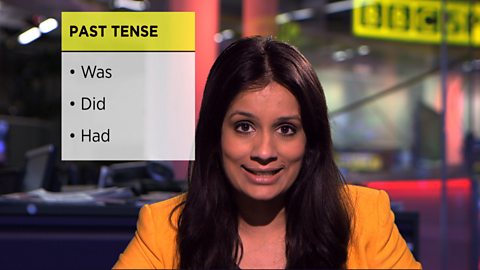CHRIS PACKHAM:
Hello my name is Chris Packham, and over the years IÔÇÖve been fortunate enough to take part in many wildlife programmes, everything from the Really Wild Show, to Springwatch. And this means that I get to meet lots of fabulous animals, like Topaz the otter here, who is absolutely beautiful, and also as you can see very hungry. Greedy otter arenÔÇÖt you!
Now when IÔÇÖm not in front of the camera presenting, I like to be behind the camera, taking photographs of wildlife; birds, mammals, insects, anything thatÔÇÖs exciting.
And to do that I use one of these, a modern digital camera, but to be honest with you, they are a bit tricky to use, so itÔÇÖs best to read the ÔÇÿHow To GuideÔÇÖ before you get started.
Now a ÔÇÿHow To GuideÔÇÖ is an example of explanation writing, because it explains how or why something works, normally in technical language, sometimes in a series of logical steps or a sequence, often using diagrams or photographs to illustrate this. And it teaches you how to do something, like use a digital camera.
Today IÔÇÖve come to a wildlife park to photograph their animals, so IÔÇÖm going to try to show you how to get a good picture of wildlife, and together we are going to write a ÔÇÿHow To GuideÔÇÖ.
So the first thing we need to do is come up with a title, something that will capture the imagination of the reader, and itÔÇÖs often good to involve a question. IÔÇÖm going to call mine ÔÇÿHow Do I Photograph Amazing Animals?ÔÇÖ.
Now the next thing you need to do is write an introduction, just a paragraph to explain what the guide is going to do.
Next, in order to explain this to the reader, we need to write a set of instructions. We are going to write these in a logical sequence, so that step by step we can explain how to use a camera. Now Im going to use numbers to make the order clear, so
ÔÇ£ÔÇÿNumber 1: First find yourself a good location, somewhere dry with nice light and plenty of wildlife. Then set up.
Number 2: Wait patiently for that wildlife to come out, and then be ready to spot it.
Number 3: Finally when you find something that you want to photograph, zoom in so that you can get that nice close up.ÔÇÖÔÇØ
Now you will have noticed that all of my sentences have been short and simple, and theyÔÇÖve been written in the present tense. They are about whatÔÇÖs going on now, instead of the past and the future. IÔÇÖve also been using ÔÇÿaction verbsÔÇÖ like ÔÇÿfindÔÇÖ and ÔÇÿwaitÔÇÖ, to explain that the reader needs to do something.
Then IÔÇÖve been using ÔÇÿtime linking conjunctionsÔÇÖ, such as ÔÇÿfirstÔÇÖ, ÔÇÿnextÔÇÖ, ÔÇÿthenÔÇÖ and ÔÇÿfinallyÔÇÖ, as well as ÔÇÿcausal linking wordsÔÇÖ like ÔÇÿso whatÔÇÖ and ÔÇÿbecauseÔÇÖ, to explain why the reader needs to do something.
In a ÔÇÿHow To GuideÔÇÖ it often helps to have diagrams or illustrations, to show the reader what to do or what to look for. So IÔÇÖve included these illustrations of a wolf, to show how to frame the animal up before you take the photograph.
Now I need to ensure that all of the readers of my guide can understand any of the technical words that IÔÇÖve used, things like ÔÇÿframe the shotÔÇÖ, ÔÇÿclose upÔÇÖ, or ÔÇÿfocusÔÇÖ. So to do this IÔÇÖm going to explain them in simple terms in a ÔÇÿglossaryÔÇÖ at the back. And a glossary is no more than a list of words, in alphabetical order, with simple explanations alongside them.
Lastly, I need to write a short conclusion, just a paragraph explaining the guide in summary, perhaps with a little more information for the readers. The words I might use are things like ÔÇÿTo concludeÔÇÖ or ÔÇÿIn summaryÔÇÖ, and I might put a link to a website in, with more information about wildlife photography.
Well now that IÔÇÖve explained how to take a really good wildlife photograph, IÔÇÖve switched my lens and itÔÇÖs time to get cracking, with some really super animals.
Video summary
Chris Packham explains how writing an explanation requires an understanding of chronological order or sequencing, how to use technical language and how to write succinctly.
He outlines how to use short, simple sentences, logical sequenced steps and technical vocabulary that may need explaining in a glossary.
He also explains how to use causal linking words and time linking conjunctions.
This short film is from the ┤¾¤¾┤½├¢ series, The Facts About Non-Fiction.
Teacher Notes
This short film could be used as an introduction to writing explanation texts.
You could pause the clip at various stages in order to ask pupils questions and check their understanding.
Some cards with key features of explanation writing could be shared around your class as they watch the video.
After watching they could write definitions and examples for these cards.
Pupils could also create a success criteria for their own writing after watching the features be explained in this resource.
This short film will be relevant for teaching English at KS1 and KS2 in England, Wales and Northern Ireland and 1st and 2nd Level in Scotland.
How to write clear instructions. video
Stefan Gates explains how writing a set of instructions requires use of simple, precise language, and an understanding of chronological order and imperative verbs.

How to write a persuasive text. video
Actors Shannon Flynn and Richard Wisker talk about using emotive language, the difference between facts and opinions, and how to use evidence to support persuasive writing.

How to write a discussion text. video
Newsround presenter Leah Boleto explains how discursive writing requires an understanding of the difference between facts and opinions, and how to use connecting phrases and statistics.

How to write a recount. video
Michael Rosen explains how writing a recount requires an understanding of chronological order or sequencing, and how to structure a piece of writing.

How to write a non-chronological report. video
┤¾¤¾┤½├¢ journalist Sonali Shah explains how writing non-chronological reports requires an understanding of the planning, writing and drafting process.
